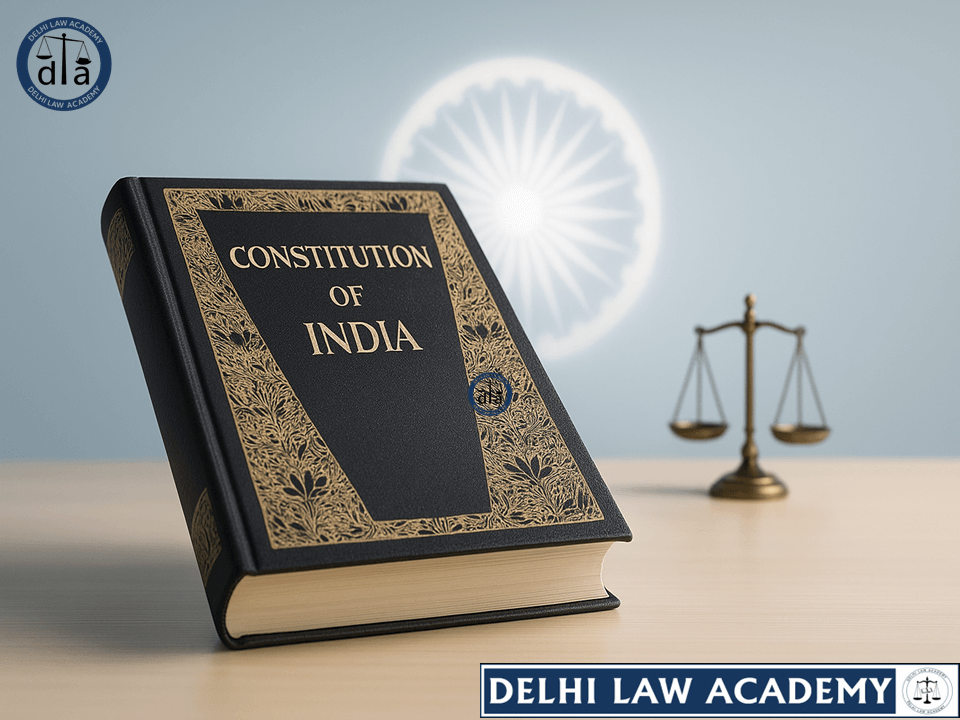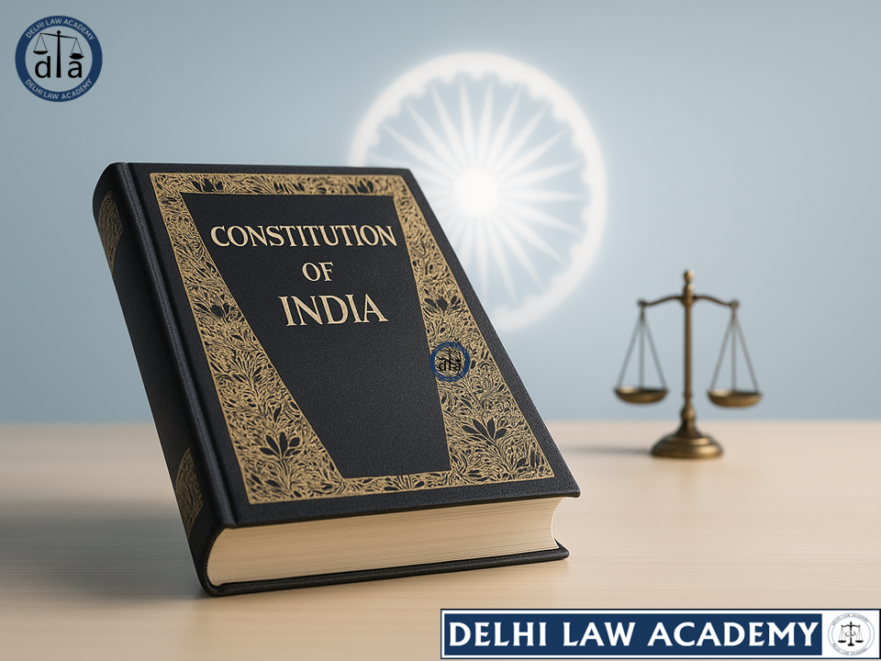
📘 Constitution Test 3 [Fully Solved]
Q1. 🏛️ Under which Articles of the Constitution the rights given therein are available only to the citizens of India?
✅ Ans: 3
Q2. ⚖️ Under the constitution of India, the entire executive power of the union is vested in the:
✅ Ans: 3
Q3. 🗳️ For the election of the President, the electoral college shall consist of:
✅ Ans: 3
Q4. 📜 Which one of the following constitutional amendments led to the constitution of administrative tribunals in India?
✅ Ans: 1
Q5. ⚖️ Which of the following statement is correct?
✅ Ans: 4
Q6. 🏛️ The constitution of India describes India as:
✅ Ans: 3
Q7. 💰 The president shall constitute the finance commission every:
✅ Ans: 4
Q8. ⚖️ In which case the Supreme Court declared Clauses (4) and (5) of Article 368 of the Constitution as unconstitutional?
✅ Ans: 2
Q9. 🌍 The ‘directive principles of state policy’ under the constitution of India aim at creating a:
✅ Ans: 4
Q10. 🎓 Article 30 of the Constitution gives the right to establish and administer educational institutions of their choice to all minorities whether based on:
✅ Ans: 3
Q11. 🏛️ Who decides in the parliament whether a bill is a money bill?
✅ Ans: 4
Q12. The three types of justice referred to in the Preamble of the Constitution are:
1. Political, social and religious
2. Economic, religious and political
3. Economic, political and social
4. Economic, social and religious
1. Political, social and religious
2. Economic, religious and political
3. Economic, political and social
4. Economic, social and religious
Ans: 3 – Economic, political and social
Q13. Which one of the following Schedules of the Constitution of India takes away the judicial review of the courts?
1. Schedule IX
2. Schedule VII
3. Schedule VIII
4. Schedule X
1. Schedule IX
2. Schedule VII
3. Schedule VIII
4. Schedule X
Ans: 1 – Schedule IX
Q14. The President of India enjoys ‘the right to return’ with respect to:
1. Only money bills
2. Both money and non-money bills
3. Only non-money bills
4. None of the choices
1. Only money bills
2. Both money and non-money bills
3. Only non-money bills
4. None of the choices
Ans: 3 – Only non-money bills
Q15. Which Article of the Constitution says that Law declared by the Supreme Court shall be binding on all courts within the territory of India?
1. Article 141
2. Article 146
3. Article 142
4. Article 140
1. Article 141
2. Article 146
3. Article 142
4. Article 140
Ans: 1 – Article 141
Q16. The Supreme Court of India to the exclusion of any other court has jurisdiction in any dispute between:
1. The Government of India and a citizen
2. The Government of India and a non-citizen
3. The Government of India and any foreign Government
4. The Government of India and one or more States
1. The Government of India and a citizen
2. The Government of India and a non-citizen
3. The Government of India and any foreign Government
4. The Government of India and one or more States
Ans: 4 – The Government of India and one or more States
Q17. Amendment to the Constitution of India may be introduced in:
1. Lok Sabha and Legislative Assemblies of State only
2. Lok Sabha, Rajya Sabha and Legislative Assemblies of States only
3. Lok Sabha only
4. Lok Sabha and Rajya Sabha only
1. Lok Sabha and Legislative Assemblies of State only
2. Lok Sabha, Rajya Sabha and Legislative Assemblies of States only
3. Lok Sabha only
4. Lok Sabha and Rajya Sabha only
Ans: 4 – Lok Sabha and Rajya Sabha only
Q18. A member of a State Assembly can be disqualified by the:
1. Governor
2. Governor in consultation with the Election Commission
3. Governor on the advice of the Chief Minister
4. Election Commission
1. Governor
2. Governor in consultation with the Election Commission
3. Governor on the advice of the Chief Minister
4. Election Commission
Ans: 2 – Governor in consultation with the Election Commission
Q19. The appropriate writ issued by the Court to quash the appointment of a person to a public office is:
1. Certiorari
2. Prohibition
3. Quo Warranto
4. Mandamus
1. Certiorari
2. Prohibition
3. Quo Warranto
4. Mandamus
Ans: 3 – Quo Warranto
Q20. When a writ is issued to an inferior court or tribunal on ground of exceeding the jurisdiction or acting contrary to rules of natural justice, it is called:
1. Quo Warranto
2. Certiorari
3. Mandamus
4. Habeas Corpus
1. Quo Warranto
2. Certiorari
3. Mandamus
4. Habeas Corpus
Ans: 2 – Certiorari
Q21. Article 25 of the Constitution guarantees freedom of religion, but it is subject to:
1. Public order, morality, health and other fundamental rights
2. Public order, morality and health
3. Public order, morality, health and sovereignty and integrity of India
4. Public order, morality and secularism
1. Public order, morality, health and other fundamental rights
2. Public order, morality and health
3. Public order, morality, health and sovereignty and integrity of India
4. Public order, morality and secularism
Ans: 1 – Public order, morality, health and other fundamental rights
Q22. Article 51A provides for the fundamental duties of:
1. Citizens of India
2. Foreigners
3. Public Servants
4. None of the above
1. Citizens of India
2. Foreigners
3. Public Servants
4. None of the above
Ans: 1 – Citizens of India
Q23. Both Union and State Legislature can legislate on:
1. Economic and social planning
2. Criminal law and procedure
3. Marriage, contracts and torts
4. All of the above
1. Economic and social planning
2. Criminal law and procedure
3. Marriage, contracts and torts
4. All of the above
Ans: 4 – All of the above
Q24. In which case the Supreme Court held that the Preamble is not a part of the Constitution?
1. A.K. Gopalan case
2. In re Berubari case
3. Minerva Mills case
4. A.K. Antony case
1. A.K. Gopalan case
2. In re Berubari case
3. Minerva Mills case
4. A.K. Antony case
Ans: 2 – In re Berubari case
Q25. Which one of the following statements is correct?
1. Preamble of the Constitution is the part of the Constitution and can be amended under Article 368
2. Preamble of the Constitution is not a part of the Constitution and cannot be amended
3. Preamble is the part of the Constitution and can be amended only if no change in the basic structure is made
4. Preamble can be amended by Parliament simply by an objective resolution
1. Preamble of the Constitution is the part of the Constitution and can be amended under Article 368
2. Preamble of the Constitution is not a part of the Constitution and cannot be amended
3. Preamble is the part of the Constitution and can be amended only if no change in the basic structure is made
4. Preamble can be amended by Parliament simply by an objective resolution
Ans: 3 – Preamble is part of the Constitution and can be amended only if no change in the basic structure is made
📚 Continue Your Constitution of India Preparation
Don’t stop here! Strengthen your knowledge of the Constitution of India with our other fully solved tests:
📘 Free Study Material for Judiciary Aspirants!
Download our FREE study material prepared by Delhi Law Academy’s expert faculty.
Contact us
📍 Delhi Law Academy – Jaipur Branch
6C, Tower 2, Coaching Hub, Pratap Nagar, Jaipur – 302033
📞 Phone:
+91 9911916552
+91 8447285606
✉️ Email:
contactus@delhilawacademy.com

